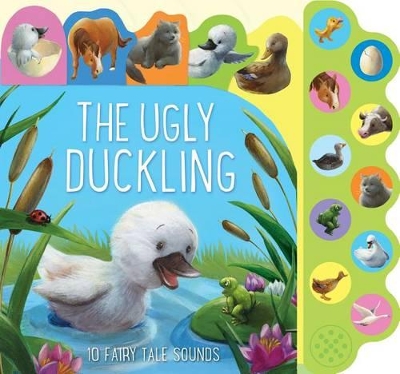In "The Ugly Duckling," a young cygnet is shunned and ridiculed by those around him due to his unconventional appearance. Abandoned and alone, he embarks on a journey of self-discovery, encountering various animals and facing the challenges of isolation. As time passes, he grows into a beautiful swan, finally realizing his true identity and worth. This beloved tale, originally penned by Hans Christian Andersen, highlights themes of acceptance, transformation, and the importance of inner beauty. Ultimately, it teaches that beauty comes in many forms and that everyone deserves to find their place in the world. [Generated by language model - please report any problems].
This book is part of a book series called Fairytale Boards .
This book is aimed at children in preschool.
This book has been graded for interest at 3-5 years.
There are 10 pages in this book.
This is a picture book. A picture book uses pictures and text to tell the story. The number of words varies from zero ('wordless') to around 1k over 32 pages. Picture books are typically aimed at young readers (age 3-6) but can also be aimed at older children (7+).
This book was published in 2017 by Parragon .
Liza Miller studied at Durham University before pursuing a career in children's publishing. She now writes and edits fiction and non-fiction for children of all ages. Polona Lovsin lives in Slovenia, and she trained to become a painter at the Academy of Fine Arts in Ljubljana.
This book contains the following story:
The Ugly Duckling
A mother duck sits on her eggs. When they hatch she has five pretty ducklings and one ugly grey duckling. ‘How ugly you are, ’ says the mother to her duckling. Wherever they go the message is the same – ugly, ugly duckling. The ugly duckling is so upset he runs away and hides. Spring turns to summer and then winter and the ugly duckling stays hidden away from the mean animals. Then spring returns and the ugly duckling emerges from his hiding place to admire a flock of swans on the river. ‘How beautiful you are’, he says to them. ‘But so are you’, reply the swans and point to the ugly duckling’s reflection in the pond. He follows their gaze and realises he is not an ugly duckling any more but has transformed into beautiful swan.








